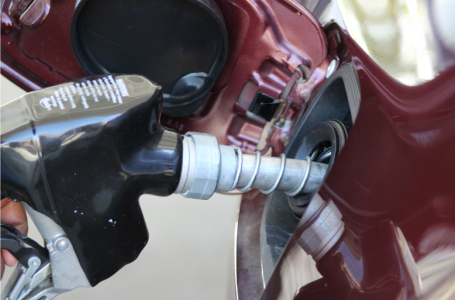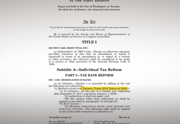This sneaky gas station mistake is costing drivers more than they think
- Replies 0
Fuel prices aren’t the only thing draining wallets at gas stations lately.
For a growing number of Americans, the real shock isn’t what’s on the sign—but what shows up on the receipt.
A quiet but costly shift in gas station payment practices has taken hold, and many drivers aren’t realizing just how much extra they’re paying until it’s too late.
Gas stations across the country have been quietly ramping up surcharges for drivers who use credit cards.
In some areas, the difference between paying with cash and credit is no small change—it’s as much as $1 more per gallon.
That means a fill-up that looks like $40 could end up costing you $50 if you swipe your card without checking the fine print.
The extra charge isn’t a mistake. It’s a credit card surcharge—something many stations now use to cover processing fees charged by card networks.

While some stations post two different prices—one for cash, one for credit—others make it less obvious, leaving drivers with sticker shock after the fact.
A recent investigation in one major county revealed drivers were routinely paying up to $1 more per gallon just for using plastic.
And this isn’t just happening in one place. It’s becoming common across the country.
What makes this practice even trickier is that it’s usually legal—depending on where you are.
In most states, merchants are allowed to add a surcharge to credit card payments. Only four states currently ban the practice altogether: Connecticut, Massachusetts, Maine, and California.
Other states—like New York, Texas, Georgia, Minnesota, and Colorado—permit surcharges but with restrictions. That means rules can vary from town to town, let alone state to state.
So if you’re traveling or moving between counties, you might notice different prices—and not just because of fuel taxes or oil markets. It's about the payment method.
Read also: Warning: This common gas station habit could cost you $500—are you at risk?
The good news? You can avoid these extra charges if you know what to look for.
Pay cash. It’s the most reliable way to get the lowest price listed. No processing fees mean no surcharges—simple as that.
Use a debit card. You might think debit cards get hit with the same fees—but they don’t. In fact, gas stations aren’t allowed to charge extra for debit card payments in any state. You’ll typically pay the same price as you would with cash. Just be mindful of where and how you use your debit card, as some risks still apply.
Check the pump. Look closely. Many stations now list two prices—one for cash and one for credit. Sometimes it's on the digital display, sometimes on a sticker or posted sign.
Ask before you pump. If you’re unsure, just ask. The attendant can confirm whether a surcharge applies and what the actual price will be for credit.
And if you’re a regular customer at one gas station chain, don’t assume their policies are consistent across all locations. Even branded stations are often independently owned—and that means different pricing rules, too.
Knowing the difference between the listed price and the real price could save you hundreds each year.
Read next: Are gas stations charging you more than advertised? The credit card trick catching drivers off guard

Have you ever noticed a price difference at the pump after using your credit card? Did you know these fees were legal in your state? Share your stories and money-saving gas station tips in the comments below—our GrayVine community is always here to help each other stretch every dollar.
For a growing number of Americans, the real shock isn’t what’s on the sign—but what shows up on the receipt.
A quiet but costly shift in gas station payment practices has taken hold, and many drivers aren’t realizing just how much extra they’re paying until it’s too late.
Gas stations across the country have been quietly ramping up surcharges for drivers who use credit cards.
In some areas, the difference between paying with cash and credit is no small change—it’s as much as $1 more per gallon.
That means a fill-up that looks like $40 could end up costing you $50 if you swipe your card without checking the fine print.
The extra charge isn’t a mistake. It’s a credit card surcharge—something many stations now use to cover processing fees charged by card networks.

Some drivers are paying more at the pump—and they don’t even know it. Image source: Dawn McDonald / Unsplash
While some stations post two different prices—one for cash, one for credit—others make it less obvious, leaving drivers with sticker shock after the fact.
A recent investigation in one major county revealed drivers were routinely paying up to $1 more per gallon just for using plastic.
And this isn’t just happening in one place. It’s becoming common across the country.
What makes this practice even trickier is that it’s usually legal—depending on where you are.
In most states, merchants are allowed to add a surcharge to credit card payments. Only four states currently ban the practice altogether: Connecticut, Massachusetts, Maine, and California.
Other states—like New York, Texas, Georgia, Minnesota, and Colorado—permit surcharges but with restrictions. That means rules can vary from town to town, let alone state to state.
So if you’re traveling or moving between counties, you might notice different prices—and not just because of fuel taxes or oil markets. It's about the payment method.
Read also: Warning: This common gas station habit could cost you $500—are you at risk?
The good news? You can avoid these extra charges if you know what to look for.
Pay cash. It’s the most reliable way to get the lowest price listed. No processing fees mean no surcharges—simple as that.
Use a debit card. You might think debit cards get hit with the same fees—but they don’t. In fact, gas stations aren’t allowed to charge extra for debit card payments in any state. You’ll typically pay the same price as you would with cash. Just be mindful of where and how you use your debit card, as some risks still apply.
Check the pump. Look closely. Many stations now list two prices—one for cash and one for credit. Sometimes it's on the digital display, sometimes on a sticker or posted sign.
Ask before you pump. If you’re unsure, just ask. The attendant can confirm whether a surcharge applies and what the actual price will be for credit.
And if you’re a regular customer at one gas station chain, don’t assume their policies are consistent across all locations. Even branded stations are often independently owned—and that means different pricing rules, too.
Knowing the difference between the listed price and the real price could save you hundreds each year.
Read next: Are gas stations charging you more than advertised? The credit card trick catching drivers off guard
Key Takeaways
- More gas stations nationwide are quietly adding steep surcharges for credit card payments, with some drivers paying up to $1 more per gallon.
- These surcharges are legal in most states, though banned in Connecticut, Massachusetts, Maine, and California.
- To avoid the added costs, drivers should pay cash, use a debit card, or confirm the final price before fueling.
- Gas stations are required to post the difference in pricing, but in many cases, signs are small or unclear—so asking is often the safest bet.






